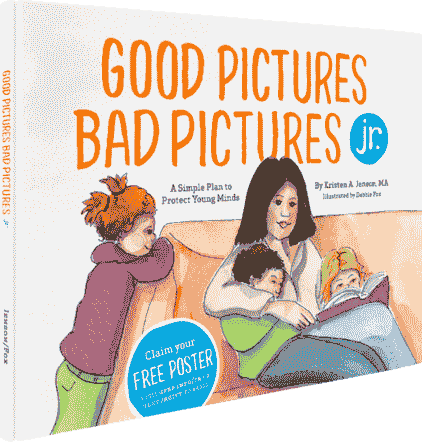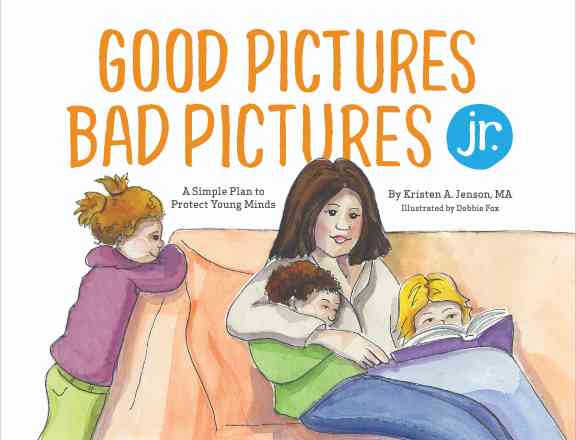The Sex Talk Begins at Age Two!

I remember asking my mother the question: Where do babies come from? She got a frightened look on her face and told me she'd tell me later.
Eventually she had the sex talk with me and explained it in a simple, if not static, analogy:
Sex is like plugging an electrical plug into an outlet.

I can't fault her--at least she did her best to answer my question in the most comfortable way possible. I have friends who got no explanation whatsoever from their parents.
With this kind of precedent, it's no wonder that many parents still view the “sex talk” as a one-time ordeal, accomplished sometime before the age of 13, and focused on the biological mechanics of sexual intercourse. The bad news is that 13 is way too late. The good news is that you can start teaching healthy attitudes about intimacy starting as young as two!
It’s important to teach children from a very young age about healthy sexuality because they need an initial healthy view of sex so that they can recognize and reject the perversion of pornography when they see it.
[[CTA]]
You might already be teaching your children about healthy sexuality
Dr. Jill C. Manning, author of What’s the Big Deal about Pornography: A Guide for the Internet Generation, encourages parents to “start teaching human sexuality in early childhood and then to layer and expand the discussion over the course of the child’s development.”
What can you teach a two-year old that will protect him or her from pornography later on? Respect, self-care and correct terminology:
Respect for others
Healthy sex requires respect from both partners. Teaching and modeling respect for your family members and friends (though you may not be perfect), will form a foundation for respectful relationships of all kinds later on. Other basic values so essential to healthy relationships are honesty, trust, and kindness. Pornography portrays none of these. Teach your children these ideals, even if you do not enjoy a perfectly ideal marriage. Knowing that a healthy sexual relationship begins with respect, honesty, trust and kindness will help children recognize that pornography is promoting quite the opposite.
Respect and care for their bodies
Our bodies are amazing! They can do so many things! But we need to take care of them and never use them to hurt others. Teaching children to care for their bodies by getting enough rest, exercise, and healthy food is critical. When they grow up respecting their bodies and feeling responsible for taking care of them, they can avoid many problems associated with addiction as well as pornography. Children who internalize a strong respect for the human body will easily recognize how grossly disrespectful pornography is.
Use anatomically correct names for body parts
Spoken without shame, so practice beforehand in the shower if you have to! Our bodies are miraculous and no part of them is shameful. If you can talk to your child about his penis or her vagina without being embarrassed, they will feel much more comfortable talking to you about sexual issues, including pornography, as they grow older. Beyond this, it's important for child sexual abuse prevention for kids to know the correct names of their body parts, as well as the body parts of the opposite sex.

Don’t discount the power of teaching these basics. You have an immense opportunity to establish healthy attitudes in your young children. Dr. Manning encourages parents to “blend sexual education into a child’s development” so the child will be more likely to “identify fraudulent messages about sexuality” contained in pornography as they grow to adulthood.


Good Pictures Bad Pictures Jr.
“I highly recommend this book to all people with children. A must have for all parents!” —Amazon Review









